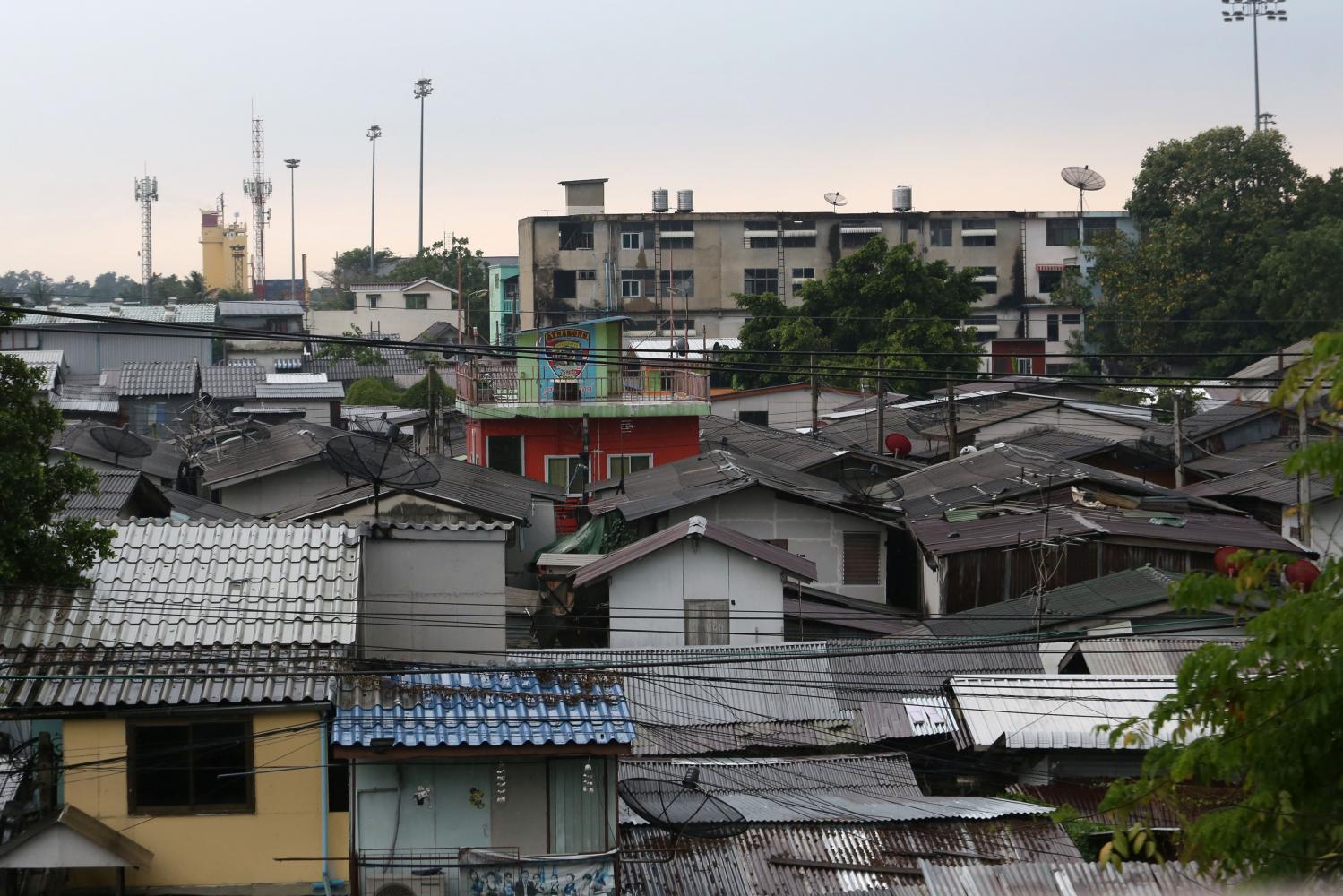
Just when we were made to believe that the Thong Lor cluster had subsided, the Klong Toey cluster emerged.
One slum resident, who worked in a Thong Lor entertainment venue, contracted the virus, which led to the new outbreak. As of yesterday, there were 2,112 new cases and 15 deaths, according to the Centre for Covid-19 Situation Administration (CCSA).
The Bangkok Metropolitan Administration (BMA) frantically launched active case finding in the area, with a target of at least 1,000 cases a day. The prime minister ordered vaccinations to be accelerated, targeting at least 50,000 people within two weeks. It remains to be seen whether active case finding and the vaccination plan for Klong Toey will match the magnitude of the cluster infection.
Indeed, the new cluster is a shock. But what is more shocking is the reality of the substandard living conditions of people in 21 dense communities in Klong Toey. As the country's largest slum, Klong Toey houses around 1.2 million people, although only 80,000 are registered as residents. It's not hard to imagine one or more families sharing rundown and cramped housing, making physical distancing impossible. One toilet per unit is the only luxury they can afford; forget about hygiene or a ventilation system.
People are struggling to survive. There was a case of two boys, 8 and 10 years old, who were left unattended as their mother was admitted for Covid-19 treatment. Kind-hearted neighbours helped provide food and called for help.
Klong Toey has always been a stigma of the capital city. During this Covid pandemic, it was only a matter of time before a cluster would emerge. The Klong Toey community is home to a large portion of Bangkok's workforce. Workers in department stores and supermarkets in the Sukhumvit, Rama IV, and Silom areas mostly live in Klong Toey.
But more interesting is how politicians handled the crisis. Earlier this week, Bangkok Governor Aswin Kwanmuang and his spokesman, and son, Pongsakorn, cashed in on the outbreak. The governor said more field hospitals are to be set up and he promised to secure a complete dose of 50 favipiravir pills for all infected people, even those with mild symptoms! The spokesman eventually picked up the two boys and put them in a safe place.
We may need favipiravir and field hospitals to contain the latest outbreak. With news of a possible cluster of infections in the nearby Rama IV area, we will need more favipiravir to deal with outbreaks in nearby communities. But what we need more is an inclusive plan to prevent cluster infections, particularly in dense communities.
Living in cramped conditions puts one at greater risk in the Covid era. But with a meagre income, these people do not have a choice. As people on the lowest rungs of society, they bear the brunt of lockdowns or semi-lockdown measures. For instance, the Bangkok Mass Transit Authority has cut its bus fleet by half, to come into line with the work-from-home measure. If anyone living in the slum was fortunate enough to keep their minimum-wage job, public buses would be their only mode of transport.
The BMA's decision to close public parks means a decrease or loss of income for food vendors. Its decision to close fresh markets from time to time also affects small traders and people who can only afford cheap eats from the market. To rub salt into the wound, if a person from a dense community is infected, their living conditions are never included in the state criteria to get a bed, or are they offered a space where they can be isolated from cramped housing while waiting for a bed.
According to television reports, a treated resident of Klong Toey said she had to stay at home with five other people while waiting for a hospital bed. It was impossible to respect physical distancing in her one-room place with only one bathroom, so the four others were infected during those few days. The case is not isolated but a reality for dense communities throughout the capital.
The alarming reality is that opening more field hospitals may not be enough as the Klong Toey cluster has already shown how a dense community can accelerate infection rates, leading to an uncontrollable situation. Apart from field hospitals, a centre or shelter that takes care of the children will be needed. Loss of income during treatment is another big problem for these families.
The BMA should look at the broader picture of how the outbreak has affected families and public confidence; inclusive care and the need for extra space should be taken into account. Vaccination criteria may need to be revised. If dense communities are not a priority for treatment, similar clusters will emerge.
